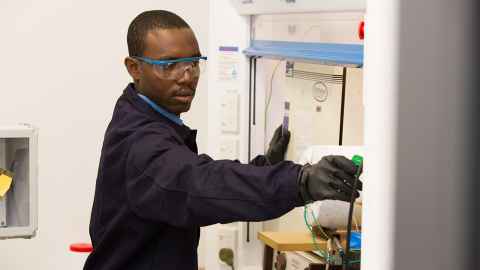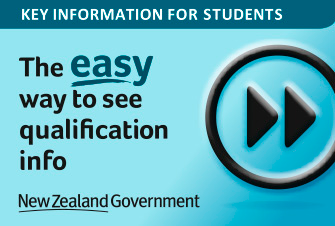Programme overview
This programme covers practical, advanced concepts – from technological to environmental – related to the light metals reduction industry, especially aluminium. It runs near a smelter – previous locations have included Bahrain, Dubai, and the USA. Having minimal access restrictions allow opportunities for you to work hands-on and witness processes in person.
Our content is curated for experienced technical and operations staff, many of whom can learn from each other. We boast tutors with decades of industry experience and significant research accolades, and an international focus that allows you to maximise your learning while only being away for three weeks.
Programme structure
This programme runs biennially. It consists of four core courses (60 points) that are completed through a combination of extramural study and an intensive, three-week, residential block course that takes place in a location adjacent to a working smelter (usually in an international location).
It contains three major sections:
- Section 1 features review and fundamentals assignments (extramural)
- Section 2 focuses on onsite lectures by world experts on each area of technology. These are interspersed with tutorials, group work, assignments, tests and site visits – this allows you to practice the techniques and concepts. You must complete all four courses in order to meet the programme requirements.
- In Section 3, you will complete an extramural advanced topics assignment. This is tailored to a specific technical issue of your interest. Sections 1 and 3 are to be completed from your home in approximately six weeks, and they contribute to your final assessment. Detailed feedback will be provided.
You'll also need to meet other requirements, including time limits and total points limits. See Postgraduate enrolment.
2024 entry requirements
My highest qualification is from:
Programme requirements
Minimum programme requirements
Minimum requirements listed here are the likely grades required and do not guarantee entry. We assess each application individually and applicants may require a higher grade to be offered a place.
-
Study optionTaught 60 pointsGrade requiredGPA Grade Point Average 4.0
Engineering or Science degree
Further programme requirements
Taught 60 points
You must have completed either a BE or BE(Hons), or a BSc or BSc(Hons) in a related field, such as chemistry or physics. You will need a GPA of 4.0.
Other pathways to study
In some cases, applicants who do not meet the entry requirements but possess sufficient work experience in the smelting industry may be considered.
Programme requirements
Minimum programme requirements
Minimum requirements listed here are the likely grades required and do not guarantee entry. We assess each application individually and applicants may require a higher grade to be offered a place.
-
Study optionTaught 60 pointsGrade requiredGPE Grade Point Equivalent 4.0
An undergraduate degree.
-
QualificationIELTS Academic International English Language Testing SystemScore required6.5
No bands less than 6.0.
Further programme requirements
Taught 60 points
You must have completed either:
- an undergraduate degree in engineering
or
- an undergraduate degree in science in a field related to this programme, such as chemistry or physics.
Your study must have been at a recognised university (or similar institution) and you will need a GPE of 4.0.
Other pathways to study
In some cases, applicants who do not meet the entry requirements but possess sufficient work experience in the smelting industry may be considered.
How much does a Postgraduate Certificate in Light Metals Reduction Technology cost per year?
2024 fees
- Domestic students
- NZ$19,122*
Fees are set in advance of each calendar year and will be updated on this website. Fees are inclusive of 15% GST, but do not include the Student Services Fee, course books, travel and health insurance, or living costs. Amounts shown are indicative only. In addition to the tuition fees, there is a Student Services Fee of $8.88 per point, estimated at $532.80 for full-time study (60 points). Fees will be confirmed upon completion of enrolment into courses.
*Please note: amounts shown are indicative and estimates only.
Find out about financial support information
Scholarships and awards
Find out about the scholarships you may be eligible for.
Student loans and allowances
Are you a New Zealand citizen or resident? You could be eligible for a student loan or allowance.
Cost of living
Get an idea of how much accommodation and general living in Auckland will cost.
Key dates
This programme is offered biennially, though this can be dependent on the availability of our tutors. You will be expected to spend three weeks working hands-on with us, usually at an overseas location. The rest of the qualification can be completed off-site.
Please note: We will consider late applications if places are still available. International students should start the application process as early as possible to allow sufficient time to apply for a visa.
Application closing dates
- Semester One 2024
- 8 December 2023
Start dates
Here are the start dates for the programme.
Other important dates
See important dates for the academic year, including orientation, enrolment, study breaks, exams, and graduation.
Where could this programme take you?
Our students are generally already employed as engineers in the smelting industry, and this programme tops up your technical underpinnings with knowledge of the in-depth processes necessary for career progression. Those intending to work in process control, as opposed to operations, may be particularly interested in the PGCertLMRTech.
Jobs related to this programme
- Lead engineer
- Process control and improvement superintendent
- Process control engineer
- Technical manager

Gordon completed a Postgraduate Certificate in Light Metals Reduction Technology. He is now working towards his PhD in Chemical and Materials Engineering.
Read moreStudent career planning service
Once you become a student at the University, you can get help with planning and developing your career from Career Development and Employability Services.
Do you need help?
Can’t find the answer in AskAuckland?
Need to speak to someone?
You can phone us directly.
- Auckland
- 923 5025
- Outside Auckland
- 0800 61 62 63
- International
- +64 9 373 7513


